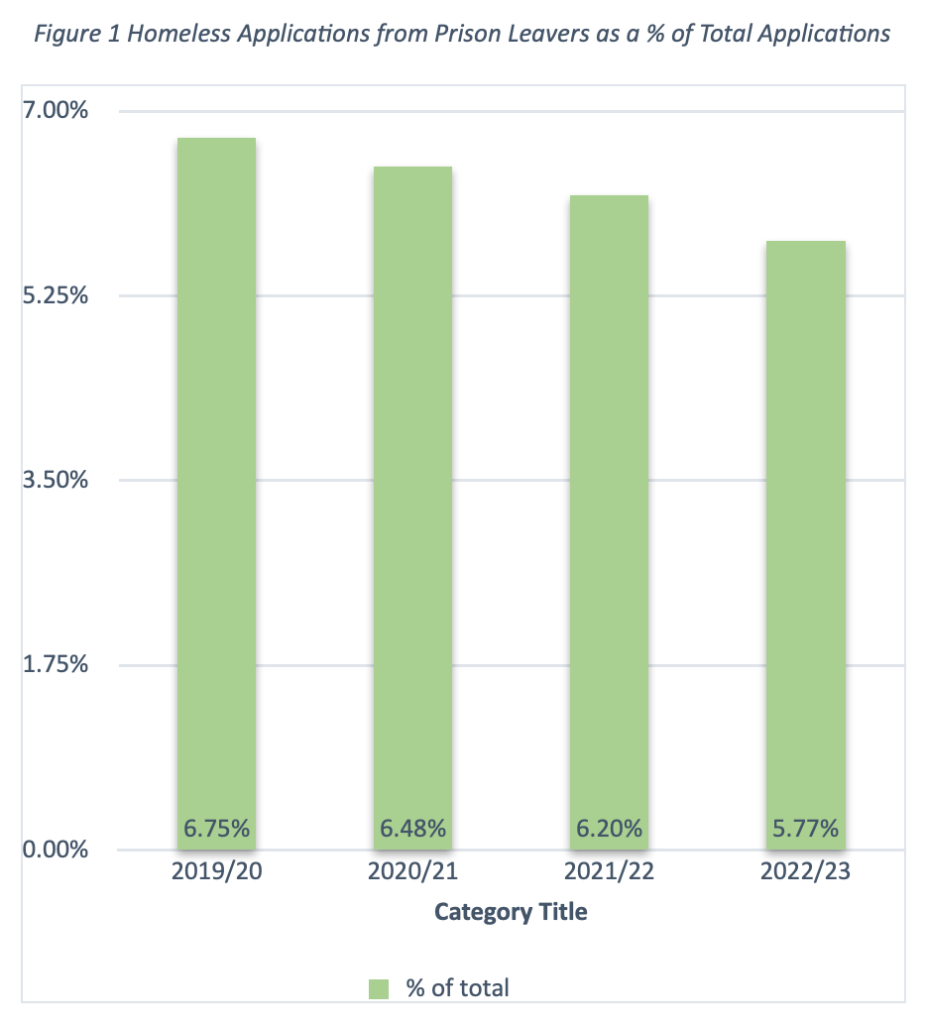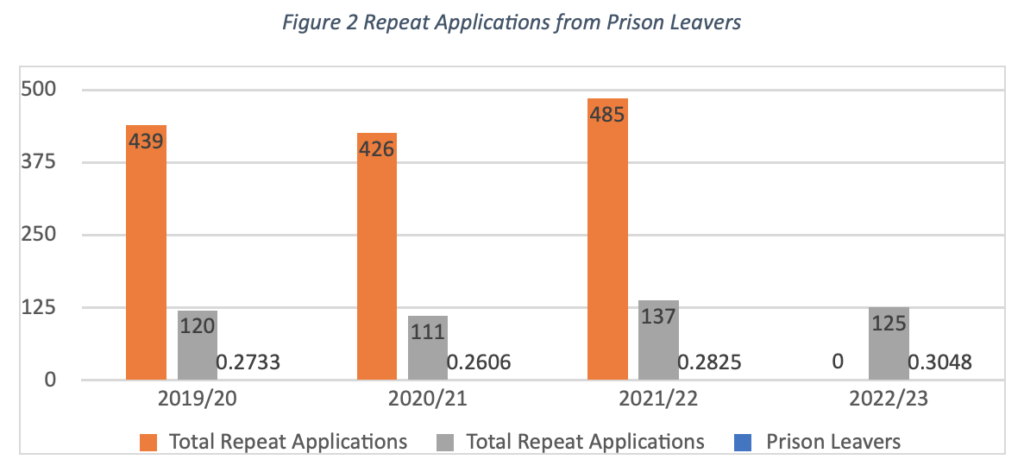
Head of Community Justice, Glasgow City Council
A Glasgow Homelessness Initiative was recognised at the Brussels Urban Summit – Karen McDonald, Team Leader for the Prison Homelessness Team in Glasgow, was invited to speak at the 2023 Urban Summit, part of the Eurocities Network, and a platform to:
- strengthen cooperation between cities globally
- boost the voice of cities in national and international policy-making
- discuss urban answers on global challenges with focus on inequality, migration and climate
Karen and her team in the Glasgow City Health and Social Care Partnership, are partners of the Pathfinder to Health, Housing and Benefits (PHHaB) partnership, a throughcare approach for those leaving a short-term prison sentences, to ensure prisoners are prepared and supported prior to being released. The project, initiated in HMP Barlinnie, works proactively around Health, Housing and Benefits issues, but it is the significant early impact in the housing area that is notable.
Data shared by the Scottish Prison Service (SPS) is used to create a robust, proactive process to protect and sustain tenancies for those admitted to prison with significant inroads being achieved to improve housing outcomes for prison leavers. Within 7 days of admission into any prison across Scotland, PHHaB receives details of all Glasgow residents in custody. If the individual is identified as homeless or of no fixed abode/hostel address, then PHHaB highlights this with the Prison Homeless Casework Team and other partners.
You can read more about the development of PHHaB in previous articles by CLICKING THE PICTURE LINK OPPOSITE or SCANNING THE QR CODE.
In 2021-22, the first year of PHHaB, 57% of tenancies were protected, rising to 59% in year two (2022-23).
The work of Karen’s team, alongside other core partners, was recognised and facilitated the invitation to share Glasgow’s experience with an international audience. As one of the Urban Summit organisers, Solen Molard, Policy Officer with Eurocities, put it:
“The fact that you and your colleagues focus on a group of individuals who are often disregarded yet are at particularly high risk of homelessness is admirable and it was amazing to hear the kind of impact it can have on people. I really hope that the working group homelessness will look more at the work with people leaving custody in the future.”
At the end of its second year, PHHaB has achieved:
100% of referrals secured accommodation on departure, with 81% provided at least one additional support service.
A growth from 20% of prison leavers provided accommodation with a Registered Social Landlord in 2020/21 to 74% in 2022/23 (and a reduction from 40% of prison leavers placed in Bed & Breakfast to 11% in the same period).
As the Prison Homelessness Team play their role moving into the third full year of PHHaB, and the phased roll-out for all Glasgow residents across the Scottish Prison Estate, the recognition of the work is a reassurance that the measured successes are noteworthy.
Representing the Homelessness Team and the wider partnership in Glasgow, Karen reflected on the pride of “showcasing what we have all achieved through true partnership working over the past few years with PHHaB” and her commitment to “see the work progress in 2023 and beyond as we engage with other Scottish prisons.”
Wider sharing seems inevitable, with learning across European counterparts, as Eurocities officers highlighted, “we had a meeting of the working group and mentioned a little bit about your project. Several cities seemed interested in hearing more.”
For the Community Justice Glasgow Partnership, improving housing outcomes and reducing the incidences of people leaving prison without suitable accommodation is a key lever in reducing the risk that an individual will re-offend. Often having suitable accommodation is the starting point for stability and for engagement with a wide range of supports, that can be wrapped around a person, to meet their often complex, needs. One of the performance indicators that we can use to measure progress is the number of homeless applications. Figure 1 below shows an encouraging trend of a reducing percentage of overall homeless applications coming from prison leavers.

Another measure that can give us an indication of the complexities is the repeat applications from prison leavers as shown in Figure 2 below. There can be a number of reasons for repeat applications (meaning that that individual has made a homeless application in the past). This can be because of the complex nature of their support needs or because an outstanding warrant or case against them which results in a return to custody either on remand or sentenced. By continuing to build on the work with PHHaB, and hopefully maintaining people’s tenancies where possible, it is hoped that we can reduce the number of repeat applications and start to see a more positive trend amongst the more complex individuals.

More on the Brussels Summit and Eurocities:
The Brussels Urban Summit (BUS) is an initiative of Brussels Capital Region, Eurocities, Metropolis and the OECD Champion Mayors for Inclusive Growth Initiative.
BUS asks the big questions because the challenges facing cities today are vast. Climate change, migration, urban growth and inequality are putting the very fundamentals of urban life to the test. At the same time, cities are the drivers for the innovation needed for a greener and more inclusive future. The big answers we find and the choices we make in the next few years will determine our future for decades to come – for our cities and beyond.
The Brussels Urban Summit (BUS) brings together three international city conferences: the 14th Metropolis World Congress, the Eurocities Annual Conference and the sixth OECD Champion Mayors Summit for Inclusive Growth Initiative. It gathers over 300 cities worldwide and more than 1000 politicians, experts and representatives of civil society to exchange ideas and set the priorities for sustainable, affordable, and liveable cities going forward.




